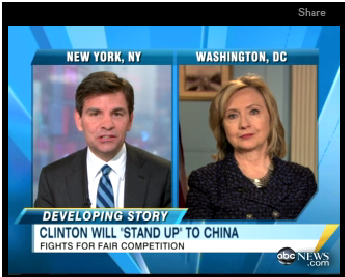 Ethics for Adversaries has been on spring break, but should be roaring back to life in the coming days.
Ethics for Adversaries has been on spring break, but should be roaring back to life in the coming days.
Here’s a newish book I’ve just ordered on the history of Adam Smith’s Great Idea — the one that still frames so much of our thinking about the ethics of deliberately adversarial institutions. (Steven G. Medema, The Hesitant Hand: Taming Self-Interest in the History of Economic Ideas.)
I just hope the book is better than the first line of Princeton University Press’s blurb, which seems at best skewed and revisionist, and at worst just false:
“Adam Smith turned economic theory on its head in 1776 when he declared that the pursuit of self-interest mediated by the market itself–not by government–led, via an invisible hand, to the greatest possible welfare for society as a whole.”
It is well-known that the famous phrase “an invisible hand” (not even “the invisible hand,” which is what we tend to say now) was used only once in the massive two-volume Wealth of Nations. It comes in a chapter railing against Restraints on the Importation of Goods. Much of the chapter concerns what we would now call the law of comparative advantage — that is, about why it is to each country’s advantage to produce what it can produce most efficiently, and to trade abroad for what can be produced more efficiently in other countries. Throughout the chapter and the book Smith points out the myriad ways restrictions on international trade create inefficiencies. And also how these restrictions inevitably come from business people lobbying gullible or corrupt politicians in order to secure domestic monopolies.
But not only is it inefficient to restrict imports of goods produced more efficiently abroad, it is usually unnecessary. Business people prefer to keep an eye on their investments and to be able to trust the people they deal with, so they will naturally, even other things not equal, invest domestically. As Smith says in the famous “invisible hand” paragraph,
“As every individual, therefore, endeavours as much as he can both to employ his capital in the support of domestic industry, and so to direct that industry that its produce may be of the greatest value; every individual necessarily labours to render the annual revenue of the society as great as he can. He generally, indeed, neither intends to promote the public interest, nor knows how much he is promoting it… he intends only his own gain, and he is in this, and in many other cases, led by an invisible hand to promote an end which was not part of his intention.”
He is talking about a particular case, and criticizing a particular type of government regulation, namely, what we would now call protectionism. He notes that this basic logic of the market replicates itself “in many other cases.” He does not say “in all other cases.” We know, for example, that the invisible hand will get all messed up in situations that involve collective action problems like the Prisoner’s Dilemma. Adam Smith would have had no reason to object to that (and I suspect that a real Smith scholar could point you to his discussions of PD-like situations). And he wouldn’t think that the general welfare would necessarily be increased by trade involving deceit, the exploitation of what we now call information asymmetries, or negative externalities.
It is also noteworthy, given the wording of the Princeton University Press blurb, that he does not say that self-interest via the invisible hand leads to “the greatest possible welfare of society as a whole.” In the “invisible hand” paragraph he is talking about “the annual revenue of every society [which] is always precisely equal to the exchangeable value of the whole annual produce of its industry.” That is, something like GDP. It is obviously an open question whether GDP tracks the “welfare of society.” Even the British Conservative Party doubts that assumption these days!
Once again, I’m no Adam Smith expert, but I have actually read great swaths of the Wealth of Nations, which is more than most latter-day “disciples” of Smith can claim. It is somewhat odd that the enduring lesson from that monumental work is the panglossian one that markets, left to their own devices, always lead to the best of all possible worlds (since that is not what Smith ever says), rather than Smith’s repeated warnings that we should always be suspicious of corporate lobbying and corporate conspiracies.
The conspiracy part we do remember from the famous quote about how we should worry whenever members of the same trade meet, “even for merriment and diversion” since they will inevitably try to fix prices. That is why even conservatives support anti-trust regulation; even if they also tend to think it is unfair in almost any particular case. But just as relevant today would be Smith’s utter contempt for business people lobbying and corrupting hapless politicians in order to enact particular regulations that serve their interest more than the public’s. Smith was concerned with trade restrictions that create unnatural monopolies, but he would be just as worried today about lobbying to allow for the exploitation of other market failures in a modern economy. And he would have been horrified when the right-wing — supposedly pro-market — justices on the Supreme Court used the Citizens United case to make it easier for corporations to pursue their interests by manipulating election processes.
And while this new book is drawing our attention to the famous “invisible hand” paragraph, it is worth noting that Smith was no fan of Corporate Social Responsibility, or CSR, either. He continues the paragraph quoted above by noting:
“By pursuing his own interest he frequently promotes that of the society more effectually than when he really intends to promote it. I have never known much good done by those who affected to trade for the public good. It is an affectation, indeed, not very common among merchants, and very few words need be employed in dissuading them from it.”
 The Kenan Institute for Ethics, in which I spend much of my academic life, is pleased to announce a new “adversarial-ethics-related” fellowship open to a graduating senior from Duke. Full details are here. Its adversarial-ethics connection is obvious: international business, especially in less-developed markets, cannot be “civilized” as easily through strong state regulation. One of the many alternatives to hard regulations that is being developed now is a form of “soft law” and “self-regulation” based on internationally recognized standards of human rights that businesses, and not merely governments, should be expected to follow.
The Kenan Institute for Ethics, in which I spend much of my academic life, is pleased to announce a new “adversarial-ethics-related” fellowship open to a graduating senior from Duke. Full details are here. Its adversarial-ethics connection is obvious: international business, especially in less-developed markets, cannot be “civilized” as easily through strong state regulation. One of the many alternatives to hard regulations that is being developed now is a form of “soft law” and “self-regulation” based on internationally recognized standards of human rights that businesses, and not merely governments, should be expected to follow.








